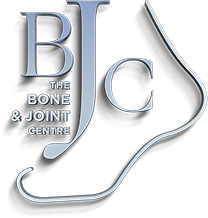The hip and spine are considered co-dependent structures in the human body, sharing numerous groups of muscles. When a specific muscle or structure in the hip is injured or damaged, it can result in pain or dysfunction in the spine, and vice versa. Disease and injury are the major cause of spine and hip pain, affecting the nerves in both areas.
Spine Injury
The spine or backbone is the body’s central support structure that connects different parts of the musculoskeletal system. It allows people to sit, stand, walk, bend and twist. Spine injuries typically refer to damage to the spinal cord, the nerves at the end of the spinal canal, as well as nearby tissues and bones, resulting in changes in sensation, strength and other body functions below the site of injury.
Spine injuries in Singapore are most likely to occur due to sports injuries, surgical complications, falls and vehicular accidents.
Hip Injury
The hip is considered as one of the largest joints in the body. It is responsible for supporting the body’s weight and a variety of movements in the lower body such as walking, running, climbing and squatting. Similar to a spine injury, a person may experience a hip injury at one point in his or her life, usually as a result of overuse from repetitive movements or degenerative illnesses like arthritis.
Other common forms of hip injuries in Singapore include fractures, strains and dislocation from sports injuries, a direct or forceful blow to the hip, a bad fall and vehicular accidents.
Sign and Symptoms
Symptoms of a Spinal Injury
A spine (back) injury is different from a spinal cord injury. A back injury may affect the bones or soft tissues in the spine (e.g. a fracture of the vertebra), but do not damage the spinal cord. A spinal cord injury, however, can have serious consequences regarding one’s motor function (in the worst case, may result in paralysis).
Symptoms of a (spine) back injury may include:
- pain or tenderness
- stiffness and difficulty standing or moving
- bruising, swelling, pain that radiates down one’s legs
Symptoms of a spinal cord injury may include:
- loss of sensation in one’s limbs
- pain caused by nerve damage
- weakness, loss of coordination or paralysis in any part of one’s body
- exaggerated reflexes and spasms
When a person experiences these symptoms, immediate medical attention should be sought to receive an accurate diagnosis and effective spine injury treatments as early as possible.
Symptoms of a Hip Injury
A person who experiences a hip injury may experience the following:
- pain in the thigh, groin, buttocks, or inside/outside of the hip joint
- stiffness in the hip
- hip pain and groin pain
- limping or difficulty in walking
- swelling of the hip
Risk Factors of a Spine or Hip Injury
- Age – People aged 65 years and above are most susceptible
- Comorbidity – Existing disorders that affect the bones and joints (e.g. arthritis)
- Labour-intensive activities and accidents – Engaging in contact sports, being in occupations that involve a lot of heavy lifting, or getting into a vehicular accident can lead to spine injury
- Unhealthy diet – This includes a diet lacking in vitamin D and calcium, which aids in building strong bones, muscles and joints.
- Being overweight – Excess weight can place additional pressure on one’s bones and joints
- Sedentary lifestyle – This can cause one’s bones and muscles to weaken, thereby making one more prone to injuries
Treatments for Spine and Hip Injuries
Depending on the type and severity of the injury, treatment can vary.
In mild cases, the injury may resolve with sufficient rest, immobilisation, activity modification, as well as appropriate heat and ice therapy to reduce pain and swelling.
In moderate cases, physiotherapy, medications (e.g. anti-inflammatories), joint injections, or additional devices like a support/brace, may be recommended by your doctor.
In serious cases, surgery may be needed to effectively treat the condition.
- Spine surgery may be needed to treat herniated discs, spinal stenosis, spondylolisthesis, vertebral fractures, degenerative disc disease, spinal tumour or infection.
- Surgery may be needed for the hip to treat a damaged or diseased hip joint, a hip fracture, and so on.
Spine and Hip Injuries that We Treat
The Bone and Joint Centre is an orthopaedic clinic in Singapore that treats a wide range of spine and hip injuries such as:
- Back and neck pain
- Slipped intervertebral discs
- Spinal cord or nerve root compression
- Spine degeneration
- Spine instability
- Curved spine (scoliosis and kyphosis)
- Spine fractures and trauma
- Hip osteoarthritis
- Hip replacement surgery
- Hip fracture surgery
- Hip impingement
- Hip osteonecrosis
- Snapping hip conditions
If you experience any pain or weakness in your spine and hip, visit an orthopaedic clinic to get your condition assessed and a treatment plan customised for you.
Our orthopaedic specialist is widely recognised in his field to skilfully diagnose & treat your injury or condition so you can emerge stronger and safely return to the activities you enjoy.
For more information, please call 9898 7781 or click here to send us an email
We want to assure you that we remain committed to providing the high quality and compassionate care you have come to expect from us. For more assistance, please call us at 9898 7781 or fill up the form below and we will get back to you as soon as possible.

3 Mount Elizabeth, #14-15,
Singapore 228510
| Tel | : +65 6970 5905 |
| Fax | : +65 6970 5906 |
| Mobile | : +65 9898 7781 |
: hello@bjc.sg, |




